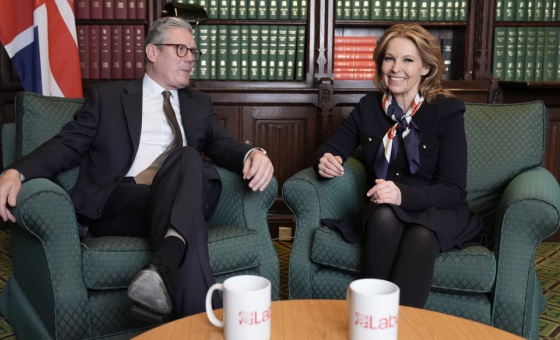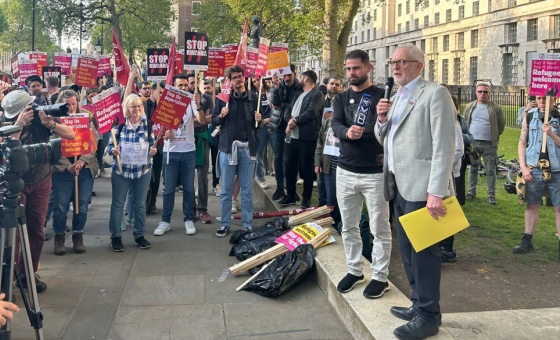This is the last article you can read this month
You can read more article this month
You can read more articles this month
Sorry your limit is up for this month
Reset on:
Please help support the Morning Star by subscribing here
UNIONS vowed as one to defy the Tories’ Strikes (Minimum Service Levels) Act in the first TUC special congress since 1982 at the weekend.
Congress voted unanimously that unions would refuse to tell their members to cross picket lines — a commitment not to comply with the repressive legislation’s diktat that unions take “reasonable steps” to ensure their members comply with work notices issued ordering named individuals to break strikes.
A general council statement specified 15 action points the entire TUC agreed to, pledging to back any worker targeted in a work notice, mount legal challenges to the new laws, and demand employers commit not to issue work notices.
Where any union faces sanctions under the new laws — which threaten huge fines and sequestration of assets if unions decline to break their own strikes — an emergency meeting of the TUC executive will be convened to look at “practical, industrial, financial and/or political backing” for the affected union.
And the Labour Party will be held to its commitment to repeal the legislation within 100 days if it is elected to government, TUC general secretary Paul Nowak promised.
Unite leader Sharon Graham said that unions need to be ready to step up. “Friends, one of us in this room, one group of our members, will be first — they will be tested.
“Real solidarity to push this back may take us outside the law,” she warned, quoting the declaration of Poplar councillors refusing to pass on government cuts in 1921: “It’s better to break the law than break the poor.”
The union movement itself must defeat the legislation, she argued. “We can’t wait for Labour. Certainly not when they’re channelling Margaret Thatcher for inspiration.”
National Education Union general secretary Daniel Kebede slammed the legislation as “the greatest attack on democratic freedoms in our lifetime,” passed by a prime minister who has never faced the public or even his own party in a democratic election.
The law was openly about trying to prevent the successful strikes of the past year: “strikes they never thought we would be able to mount or sustain, a union of half a million members breaking this government’s anti-democratic strike thresholds not once, but twice.”
TUC president and Fire Brigades Union general secretary Matt Wrack said unions had “fired the starting gun on a campaign of resistance.
“This new law is an attempt to ban strikes in many sectors of the economy, including the fire and rescue service. The trade union movement cannot passively accept that outcome, and it won’t.
“Crucially, unions have today agreed that they will refuse to tell their members to cross picket lines — a clear act of defiance against the Act. We now need to build a mass movement of resistance and solidarity to break these authoritarian new laws.”
The FBU’s Steve Wright said unions now needed to organise “a fighting campaign against this Act — that mobilises our members in each and every workplace. Makes ministers and employers realise they have stirred up the hornets’ nest.
“We have defeated anti-trade union laws in the past. Things have changed.. our movement is now smaller.
“That should not prevent us from being ambitious.” He called for “building powerful workplace organisations, much like the mass shop stewards’ movement of the past.”
Mr Nowak said the special congress sent a message to every employer: “You send a work notice to a union, you threaten the right to strike, and you should expect to find 48 unions ready to respond.”
The Congress agreed to call an emergency demonstration if a work notice is deployed a union or employee is sanctioned in relation to one.
It will mobilise for a march in Cheltenham on January 27 in commemoration of the sacked GCHQ workers who defied a ban on joining a union at the spooks’ Cotswold lair in 1984, and to signal “defiant opposition to Conservative minimum service levels, trade union restrictions and any threat to the right to strike.”

 Ben Chacko
Ben Chacko









